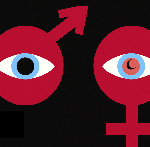
Gender Equality Action Plan
Introduction
 This action plan sets out ServTech’s priorities for gender equality, identifies activities to achieve equality of opportunities between women and men, and presents monitoring plans to ensure international, European, and national regulatory frameworks.
This action plan sets out ServTech’s priorities for gender equality, identifies activities to achieve equality of opportunities between women and men, and presents monitoring plans to ensure international, European, and national regulatory frameworks.
Regulatory frameworks
International Law
The 1979 Convention on the Elimination of All Forms of Discrimination against Women (CEDAW) comprehensively prohibits discrimination against women. Article 1 defines it as "any distinction, exclusion or restriction based on sex which has the effect or purpose of nullifying or impairing the recognition, enjoyment or exercise by women, irrespective of family status, of human rights and fundamental freedoms, in the political, economic, social, cultural, civil or any other field, based on equality between men and women".
European Law
The 2009 Treaty on the Functioning of the European Union (TFEU) also contains anti-discrimination provisions. It explicitly emphasizes equality between women and men. Art. 9 and Art. 10 regulate social exclusion and integration and the fight against discrimination based on sex, racial or ethnic origin, religion or belief, disability, age, or sexual orientation. Article 157 TFEU requires equal pay for men and women.
National Law
The German Basic Law is the highest level of the German legal system and enshrines fundamental rights. Article 3 of the Basic Law serves to protect against discrimination and to ensure equality between women and men.
Regime of operation
This Gender Equality Action Plan (GEAP) is embedded in ServTech's operations and monitored by the Board of Directors. After extensive discussion within the ServTech membership, the current project teams, and ServTech's network of experts, the GEAP was approved by the Board of Directors on 15 January 2023.
Objectives
ServTech is committed to promoting gender equality in research and innovation by addressing the following objectives:
- Promote gender balance in leadership and decision-making.
- Consider gender equality in contracting personnel.
- Improve research quality through heterogeneous research teams.
- Integrate gender aspects, ethnicity, race, and other forms of structural bias dimensions into research and innovation content.
- Ensure equal pay.
- Appoint women in leading research positions
- Make women's scientific achievements visible on the website and in the publication and authorship of scientific articles.
- Provide mentorship for women in managerial and research positions
- Sanction any kind of sexual harassment.
Operating Ranges of ServTech
ServTech is a small non-profit research association founded in 2007 with the mission to promote application-oriented scientific research, technology innovation, and diffusion in the areas of Big Data, Software Engineering, Service-Oriented Computing, Cloud Computing, Knowledge-Based Systems, Artificial Intelligence, and Digital Twins. To achieve this mission, ServTech acts as a research partner in large-scale cutting-edge R&D projects and organises and sponsors scientific events.
Research personnel is directly hired by ServTech in the form of working contracts per project. A team typically consists of 3-5 internationally recognised senior academics from ServTech’s expert network. Team members usually collaborate remotely. ServTech does not provide office space or equipment. The experts work from their home office with their own equipment and are free to organise their daily and weekly project work according to the project schedule.
ServTech is the main sponsor of the prestigious International Conference on Service-Oriented Computing series (ICSOC) and supports the Symposium and Summer School on Service-Oriented Computing (SummerSOC) with an annual Young Investigator Award.
Implementation of the GEAP
Until 2022, the ratio of male to female scientists in the project groups was unbalanced at 3:1 and 2:1, respectively. This situation was significantly improved in January 2023 with the recruitment of a female computer science student to a ratio 2:2. In the new HORIZON 2020 project ONCOSCREEN, which started in January 2023, the long-standing female scientist was entrusted with the leadership of the ServTech project group. Although she is not yet as experienced as her male colleagues, she is paid the same hourly rate.
Regarding gender equality in organising meetings, the two ServTech members of the ICSOC Steering Committee aim to ensure that the selection of General Chairs and PC Chairs includes an equal or near equal number of women. In the selection of Best Paper and Young Investigator Awards, female authors will be given preference over male candidates, provided that the quality of the contributions is comparable.
As ServTech's project groups are relatively small, with no more than three projects in progress at any one time, the Board is responsible for monitoring the achievement of the GE objectives and recording events and progress in its annual report to the membership.